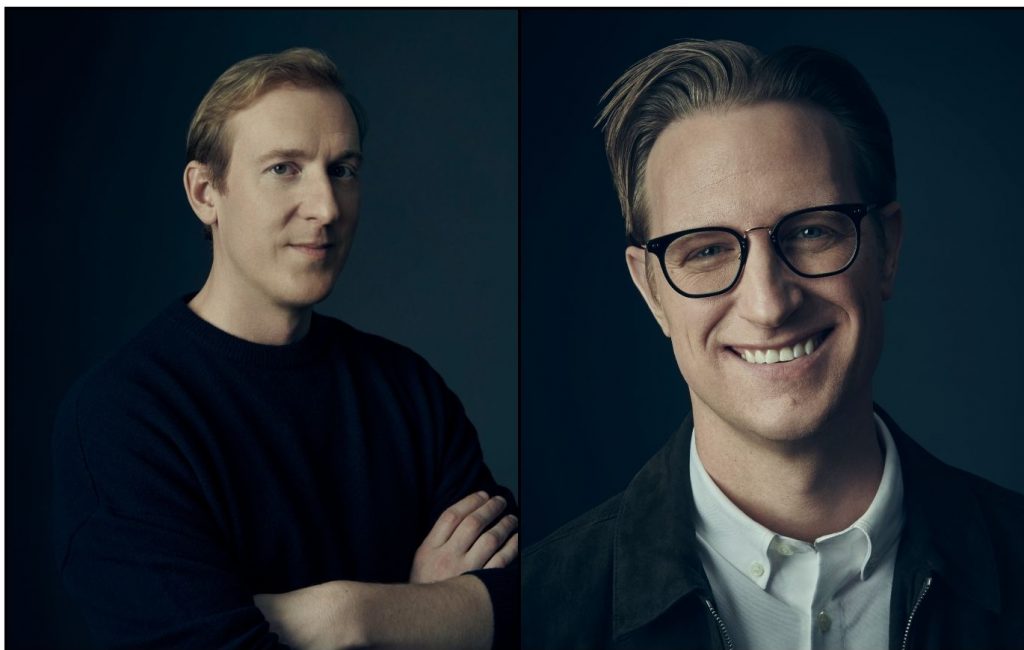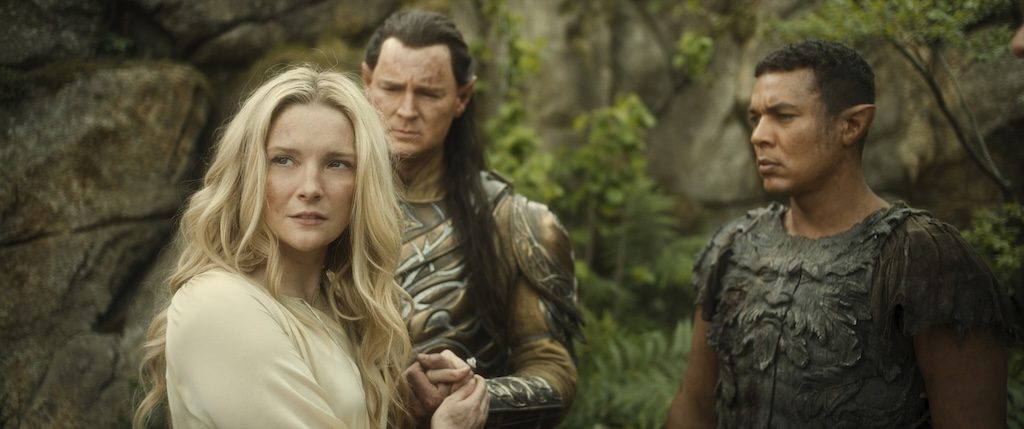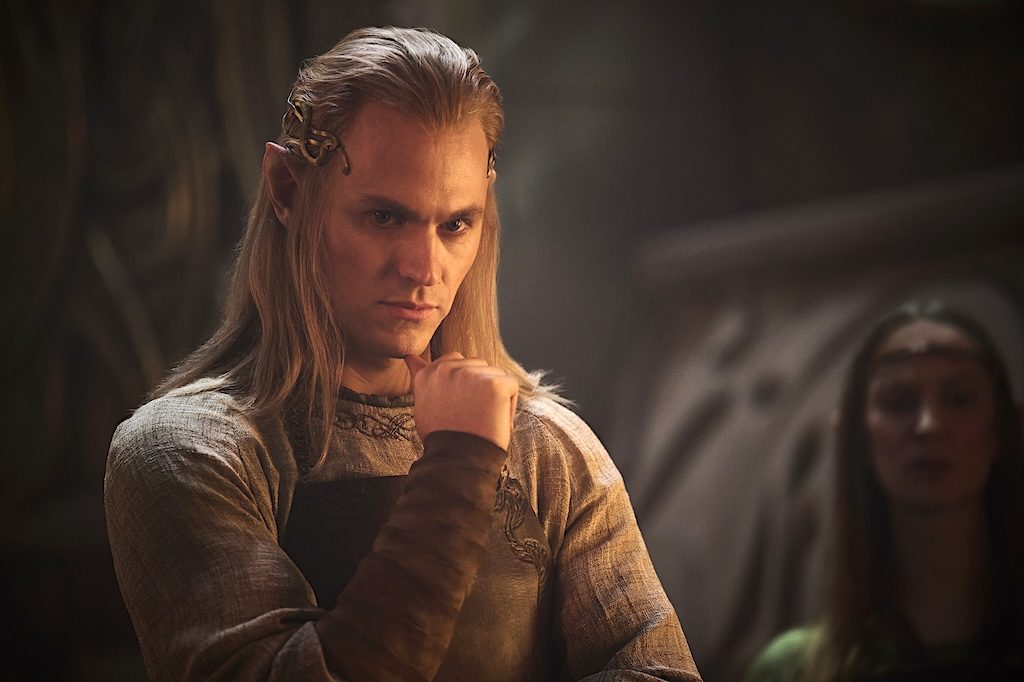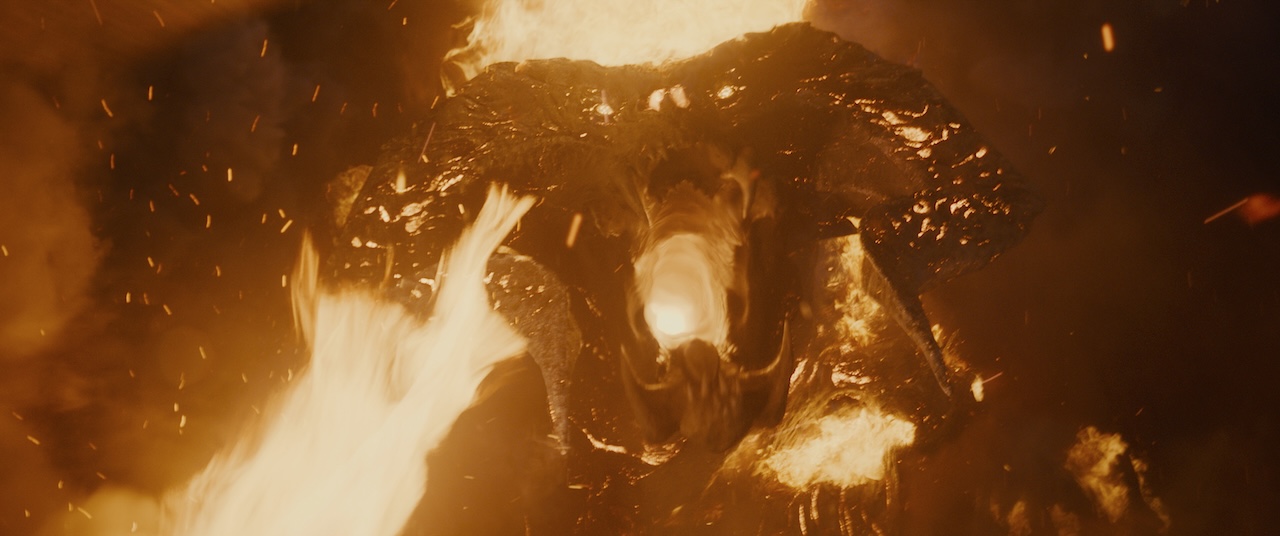“We worked harder than anyone we knew every year for like twelve or thirteen years, like around the clock. We just couldn’t stop. It’s what we wanted to do,” says J.D. Payne, reflecting on the journey that led him and writing partner Patrick McKay to become showrunners of television series The Lord of the Rings: The Rings of Power.
Their path from high school theater students to stewards of Tolkien’s literary legacy offers insights into both the craft of writing and the power of creative partnership. Their collaboration began in high school theater with complementary interests that would shape their future partnership. “I came to it a little more from writing poetry and short stories,” Payne explains, while “Patrick was kind of little Mr. Film Buff and loved to learn about directors.”

Patrick McKay & JD Payne. Photo by Jason Bell/ Prime Video
This blend of literary and cinematic sensibilities proved crucial as they developed their voice as a writing team. “We’ve worked on various projects separately over the years,” McKay notes, “but I think we each had things we felt very comfortable doing and then they happened to be opposite things. When we started working together, it was like jigsaw pieces fitting together.”
The Long Road To Middle-Earth
After moving to Hollywood with “enough gumption and naivete,” they spent years honing their craft through assignment work. Their breakthrough came just in time – they sold their first spec script in August 2010, two months before Payne’s self-imposed deadline of turning thirty, after which he’d promised his parents to consider “getting an adult grown-up job.”
“You are not writing movies,” Payne emphasizes to aspiring writers. “You are writing dozens and dozens of scripts over and over again that are not getting made into movies in the hope of mastering the craft so that when you have a chance on a project that could be a movie, you’re able to meet that challenge.”
When assembling their writers’ room for The Rings of Power, they sought diverse storytelling perspectives. “We approached it with a knowledge of our own strengths and limitations,” McKay explains. “We wanted to hire people who would be the eyes in the back of our head.” Their team included veterans from Pixar, the Breaking Bad room, The Sopranos, and Game of Thrones.
“Filmmaking and TV making are very different from novel writing,” Payne notes. “As a novel writer, you are master of every single period, comma, and word on that page. But even as a showrunner, you are working with a much larger set of agencies.” This collaborative nature of television requires both vision and flexibility.
Adapting Tolkien
When the opportunity to pitch for LOTR: The Rings of Power arose, they spent nearly a year in conversations with Amazon, diving deep into Tolkien’s work. “One of the challenges is that there is no linear second age novel that you can go to,” Payne explains. Their research involved creating a master document of every reference to the Second Age across Tolkien’s works, while carefully navigating the legal boundaries of their rights agreement.

Galadriel (Morfydd Clark), High King Gil-galad (Benjamin Walker) & Arondir (Ismael Cruz Córdova) Photo courtesy of Prime Video
Their pitch centered on expanding what Peter Jackson covered in five minutes of his trilogy into five seasons of television. “There’s a huge epic Lord of the Rings story that’s never been told that Tolkien has left us the breadcrumbs for,” McKay says. “We’re going to flesh it out into a mega series.”
Both writers emphasize the importance of being ready for inspiration while maintaining consistent work habits. “We talk about having your nets in the water,” Payne explains. “Sometimes you go out for a walk. Sometimes you go take a shower. Sometimes you go exercise but you have to be ready whenever the right idea comes.”
This approach extends to their philosophy about writing itself. “When you approach the work from a point of view of scarcity, everything feels like a war,” McKay reflects. “But if you approach it from a point of view of abundance and say this is the idea that was today, there’ll be another idea tomorrow, and another idea the day after that… As long as you’re coming back to the page again and again and doing your best work every day, you’re doing your job as a writer.”
Balancing Different Audiences
The showrunners approached the series with multiple audiences in mind, from complete newcomers to devoted Tolkien scholars. “The show is for everyone,” Payne insists, “If you’re a Tolkien fan in one respect or another, there are hopefully two or three other layers of every scene in every episode that you’re going to be riffing on and appreciating.”
This balance required constant attention. “Every single thing that ends up on the screen in the season of this show has gone through eighty-seven flaming hoops to make it there,” McKay notes. They worked to ensure each element would both engage new viewers and respect the source material.

Sauron (Charlie Vickers) Photo courtesy of Prime Video
Looking ahead, both writers maintain that success in screenwriting comes from an undying love for the work itself. “People have climbed Mount Everest,” Payne reflects, “but the people who make it to the top, it’s not because they have a dream, it’s because they loved what they were doing so much that they could not stop climbing.”
For aspiring writers, their message is clear – focus on the craft, embrace collaboration, and be prepared for endless revisions. As McKay puts it, “You have to eat failure for breakfast, lunch and dinner.” But with persistence and passion, the path to success – even to Middle-Earth – remains open to those willing to put in the work.
This interview has been condensed. Listen to the full audio version here.

